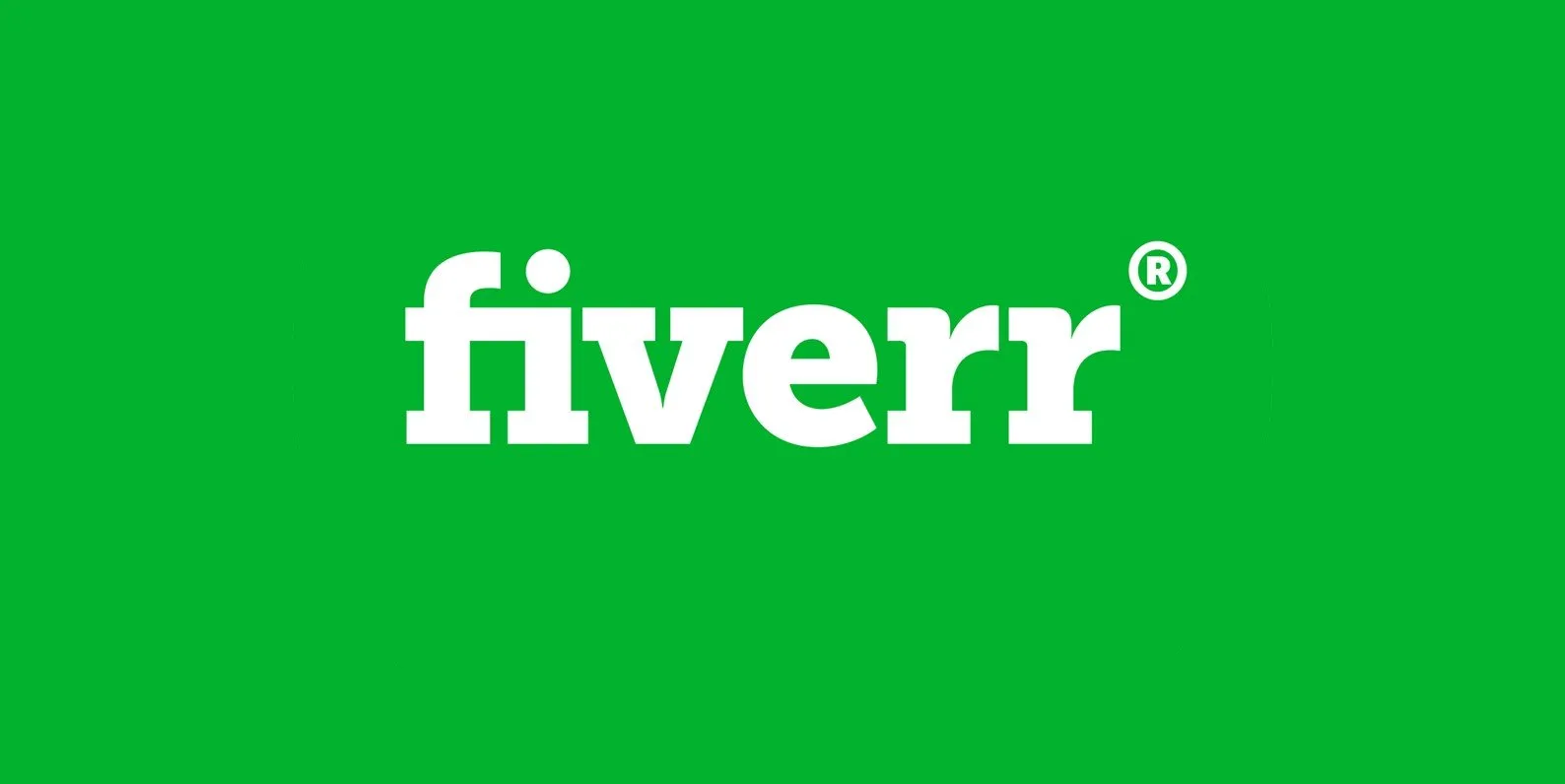If you've ever dipped your toes into the world of freelancing, chances are you've come across Fiverr. This online platform has revolutionized the way people connect and collaborate on various freelance projects. But have you ever wondered who actually owns this widely-used marketplace? Understanding the ownership behind Fiverr not only deepens your knowledge about the platform but also sheds light on its operational dynamics and vision for the future. Let’s dive in!
Overview of Fiverr

Fiverr was launched in 2010 by Micha Kaufman and Shai Wininger with a simple yet powerful idea: to create a digital marketplace that allows freelancers and buyers to connect easily. What’s unique about Fiverr is its initial pricing model—services, or "gigs," start at just $5, which makes it incredibly accessible for both sellers and buyers. This low entry point opened the doors for countless freelancers to showcase their skills and earn money while allowing businesses to find affordable solutions.
Here are some key points about Fiverr:
- Diverse Categories: Fiverr hosts gigs across numerous categories, including graphic design, digital marketing, writing, programming, and more. This variety caters to a global audience, satisfying multiple needs.
- User-Friendly Interface: The platform is designed to be easy to navigate. Freelancers can set up their profiles and list services quickly, while buyers can browse through endless options effortlessly.
- Global Reach: Fiverr operates in multiple countries, connecting freelancers from different backgrounds and allowing businesses worldwide to tap into a vast talent pool.
- Quality Control: While anyone can join, Fiverr employs a rating and feedback system that helps buyers choose reliable sellers, enhancing trust within the marketplace.
Over the years, Fiverr has expanded its services, launching Fiverr Pro for premium offerings and Fiverr Learn for skill-based courses. The platform's commitment to innovation continues to drive its popularity among freelancers and businesses alike.
Also Read This: What Documents Do I Need to Work on Fiverr?
History of Fiverr's Ownership

Fiverr was founded in 2010 by Micha Kaufman and Shai Wininger, who aimed to create a platform that made it easy for freelancers to offer their services in a user-friendly online marketplace. The idea was to simplify the process of finding and hiring freelancers for small tasks, thus the name "Fiverr," which initially emphasized the idea that many services could be purchased for just five dollars.
Over the years, Fiverr went through several key stages of ownership and financial backing. In 2012, the company secured its first round of funding, which helped it grow rapidly and enhance its platform features. This investment came from various venture capital firms, which recognized the site's potential in the burgeoning gig economy.
In 2018, Fiverr went public with an initial public offering (IPO) on the New York Stock Exchange under the ticker symbol "FVRR." This move marked a significant milestone in Fiverr's history as it allowed the company to gain more visibility, attract additional investors, and expand its offerings dramatically.
Throughout its growth, Fiverr has acquired multiple startups and technologies to enhance its services and broaden its marketplace. These acquisitions have played a pivotal role in shaping Fiverr's evolving identity in the competitive freelance landscape.
So, the history of Fiverr's ownership is quite a journey—starting from a simple idea to becoming a publicly traded company, cementing its position as a leader in the freelance marketplace. From its humble beginnings to its IPO, Fiverr has transformed the way people work in various industries and continues to innovate successfully.
Also Read This: How to Make Money with Fiverr: A YouTuber’s Guide
Current Ownership Structure

As of now, Fiverr operates under a publicly traded corporate structure, which means that ownership is shared among its shareholders. The ownership landscape includes various stakeholders, ranging from institutional investors to retail investors.
Here’s a breakdown of the current ownership structure:
- Founders: Micha Kaufman and Shai Wininger still hold significant stakes in the company, reflecting their ongoing commitment to Fiverr's vision and growth.
- Institutional Investors: A large portion of Fiverr's shares is owned by institutional investors, such as mutual funds and pension funds. These entities often have significant influence due to the volume of shares they control.
- Retail Investors: Many everyday investors also own shares of Fiverr, taking advantage of the opportunity to benefit from the company's market performance.
- Employee Stock Options: Fiverr provides stock options as part of its employee compensation packages, further aligning employee interests with the company's success. This strategy helps attract talent and foster a collaborative work environment.
In addition to this structure, Fiverr’s ongoing performance impacts stock value and investor sentiment. With ambitious plans for future growth, Fiverr continues to attract interest in the gig economy, and its ownership structure will likely evolve to reflect changing market dynamics and strategic objectives.
Also Read This: What is Fiverr? A Comprehensive Guide to the Freelance Marketplace
Impact of Ownership on Fiverr's Operations

The ownership structure of Fiverr plays a crucial role in shaping its operations and strategic decisions. As a publicly traded company since 2019, Fiverr is accountable to its shareholders, which influences how it prioritizes various business objectives.
Being owned by stockholders means that Fiverr must focus on generating profit while also maintaining a strong platform for freelancers and clients. Here are a few notable impacts of ownership on Fiverr's operations:
- Investment in Technology: As a public company, Fiverr attracts investors looking for growth. This encourages continuous investment in technology to enhance user experience, which includes upgrading the platform, enhancing algorithms, and improving customer support.
- Market Expansion: Fiverr’s ownership can dictate its approach to expansion. For example, the pressure to grow revenue may push the company to explore new markets or verticals, possibly leading to the introduction of new services.
- Focus on Profitability: Public ownership often means higher scrutiny over the bottom line. This can lead Fiverr to adopt cost-cutting measures or to streamline operations to remain competitive.
- Community Building: As Fiverr seeks to grow its user base, enhancing the community aspect becomes essential. Ownership can influence policies intended to foster a positive environment for freelancers and buyers alike.
In summary, Fiverr's ownership impacts everything from its technology investments to its community-building strategies, positioning it in a dynamic marketplace where adaptability is key.
Also Read This: Is Fiverr Good for Website Development?
Future Prospects and Potential Changes in Ownership
Looking ahead, Fiverr's future prospects seem bright, but various factors could lead to potential changes in ownership. Given the competitive landscape of freelance marketplaces, it's essential to consider how external pressures and strategic decisions could reshape Fiverr's path.
Here are some future prospects and potential changes in ownership to keep an eye on:
- Strategic Acquisitions: Fiverr may pursue acquisitions to enhance its service offerings or to strengthen its market position. This could lead to changes in how the company is managed and prioritize various features.
- Partnerships and Collaborations: Collaborating with other tech companies or platforms could influence Fiverr's business strategy, potentially modifying its existing ownership structure if these partnerships lead to significant investments.
- Market Conditions: The fluctuating economic landscape may prompt Fiverr to reconsider its ownership model. This might include seeking private equity investment or exploring further public offerings to finance growth.
- Investor Expectations: As a public company, Fiverr must meet shareholders' expectations, and a failure to do so could lead to proposals for management changes or even shifts in ownership to align with investor interests.
All in all, while Fiverr's ownership structure is stable for now, numerous external and internal factors could lead to interesting changes in the future, making it essential for stakeholders to stay informed about the evolving landscape.
Who is Fiverr Owned By?
Fiverr, the online marketplace for freelance services, was co-founded by Micha Kaufman and Shai Wininger in 2010. Since its inception, the platform has revolutionized the way people find and offer various digital services. Headquartered in Tel Aviv, Israel, Fiverr has grown significantly over the years, expanding its reach and service offerings. In June 2019, Fiverr went public on the New York Stock Exchange under the ticker symbol "FVRR," marking a significant milestone in the company’s journey.
The ownership structure of Fiverr can be broadly understood as follows:
- Founders: Micha Kaufman and Shai Wininger retain significant influence over the company's direction.
- Public Investors: As a publicly traded company, Fiverr is owned by a diverse range of institutional and retail investors.
- Employees: Employees of Fiverr may also own shares, particularly those who have been granted stock options as part of their compensation packages.
Additionally, here is an overview of Fiverr's organizational structure:
| Position | Name |
|---|---|
| CEO | Micha Kaufman |
| CTO | Shai Wininger |
Fiverr has continued to innovate, expanding into new categories and services while maintaining a user-friendly interface that connects freelancers and clients seamlessly.
In conclusion, Fiverr is co-owned by its founders, public investors, and employees, all contributing to its dynamic operation and continued growth in the freelance marketplace.



